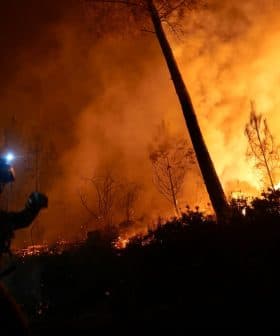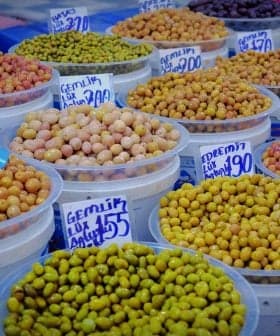Pandemic and Weather Extremes Compound an Off-Year in Turkey
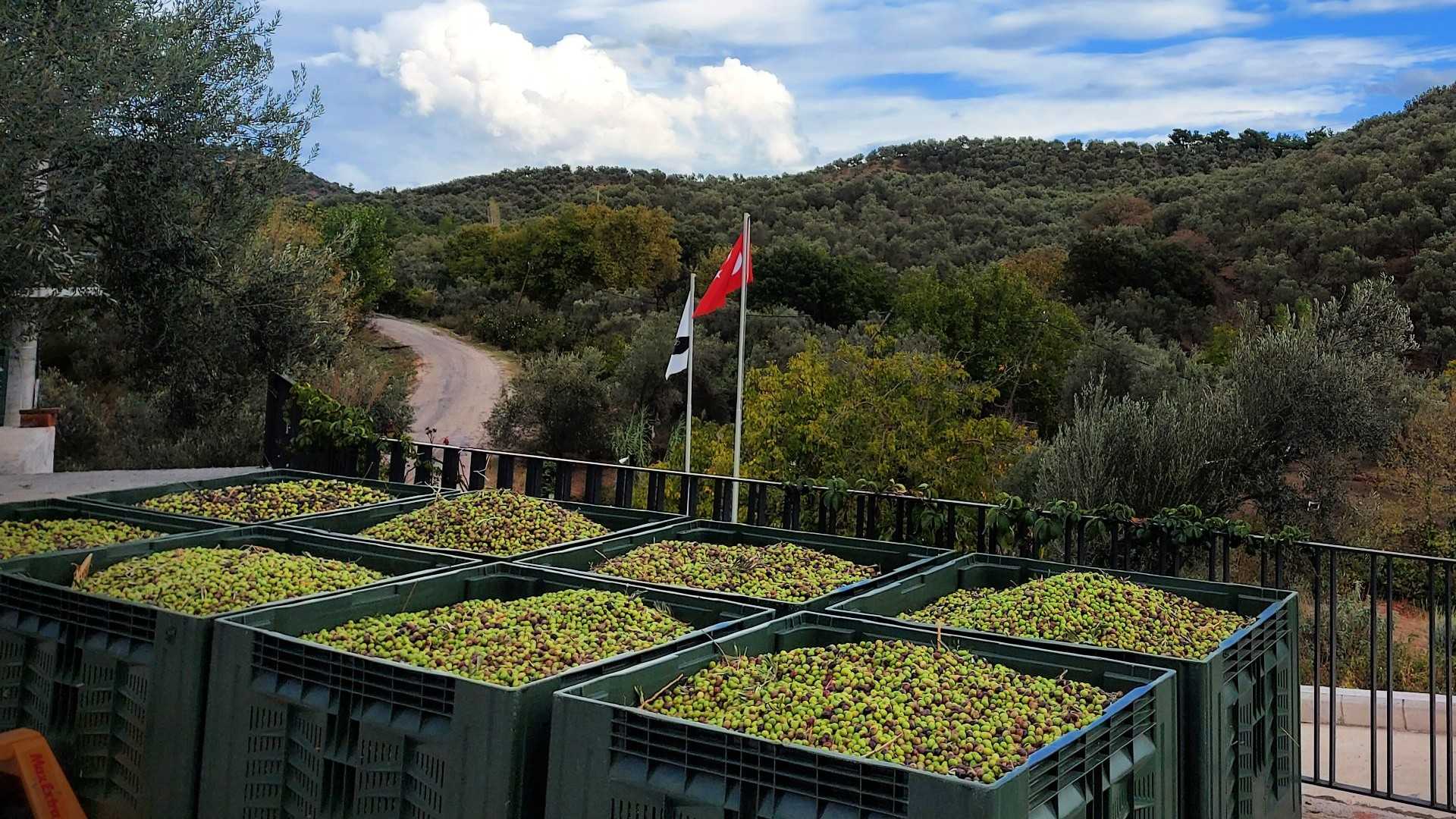
Turkish olive oil production for 2020 is expected to be between 180,000 and 210,000 tons, lower than last year due to climate change and the Covid-19 pandemic, which led to challenges like heatwaves and increased production costs. Despite these setbacks, producers are adapting by increasing online sales and focusing on domestic consumption to offset losses in the hospitality sector.
As the 2020 olive harvest comes to a close, Turkish olive oil production is expected to reach between 180,000 and 210,000 tons, according to estimates from Juan Vilar Strategic Consultants and the International Olive Council (IOC). Last year the country produced around 225,000 tons.
Scorching springtime temperatures followed by heavy rains severely damaged the olive crop and once again forced producers to harvest earlier than normal.
Just like any other industry, the Covid-19 pandemic had an impact on our harvest, especially in the production and organic certification processes.
The Covid-19 pandemic complicated the harvest for some producers, as new sanitary and social distancing measures were introduced in groves and mills and local curfews came into effect.
“This year has been exceptionally challenging due to climate change and the pandemic,” Ahat Caskurlu, the co-founder of Zeytín Oil, told Olive Oil Times. “We not only had to maneuver around Covid-19 protection measures like increased social distancing during production and working around local curfew hours, but also had a major negative impact from the heatwaves we faced last May.”
Caskurlu expects to produce 25 tons of olive oil this year from his groves in Canakkale, at the very northern tip of the Anatolian peninsula, and Aydin, in the center. Last year, Zeytín Oil produced more than 30 tons.
“Our olive flowers were severely damaged with the heatwaves and strong rain showers hence our yield dropped 20 to 30 percent,” he said.
With predictions suggesting a yield up to 20 percent lower than last year, Ümmühan Tibet, the chairwoman of the board of Turkey’s National Olive and Olive Oil Council (UZZK), said the difference was mainly due to a majority of producers entering the off-year of the olive tree’s alternate bearing cycle.
However, she acknowledged that climate change was also making the harvest more challenging.
See Also:2020 Harvest Updates“Unfortunately the olive oil production of the producer countries has started to fluctuate much more as a result of global climate change in recent years,” she told Olive Oil Times. “We were adversely affected by extreme weather, heat and drought during the flowering of the olive tree and fruit growth.”
Tibet still expects production to continue trending upwards in Turkey as it has over the previous decade. Even in the worst-case scenario for this year’s harvest, production would be just 10-percent below the rolling five year average. In the best case, it would exceed the rolling average by nearly five percent.
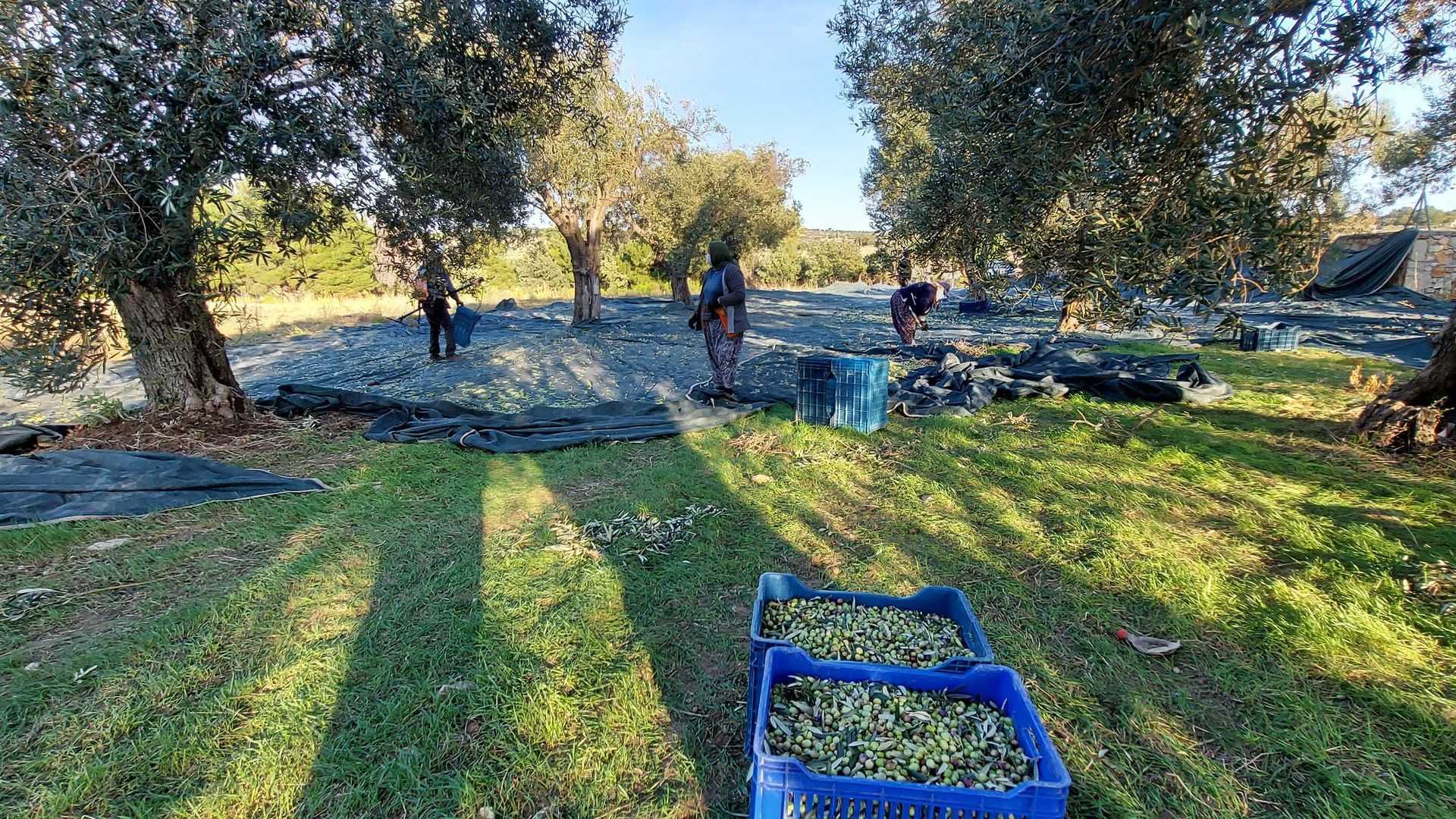
Mehmet Taki
“Due to the increase in the number of olive trees every year in our country, our total olive production is usually between 1.5 million tons and two million tons,” Tibet said. “Since the consumption of table olives is traditionally high in our country, we use one-third of our olive fruit production for table olives.”
“As the fruit could not grow due to drought this year, the majority of the 1.35 million tons of fruit produced will be used for olive oil production,” she added. “So we estimate nearly 200,000 tons of olive oil production.”
The vast majority of Turkey’s olive oil production takes place on the broad western tip of the Anatolian peninsula. Even though nearly 400 kilometers separate the northern and southern shorelines, challenges created by the climate was a consistent theme among producers.
In the village of Bozburun, at the very southern end of the peninsula, Mustafa Birhan Hazer lamented the highly volatile temperatures that have become increasingly frequent in the spring and started to coincide with the blossoming of the olive flowers.
“[This year] is double last year’s harvest,” the Bozelli founder told Olive Oil Times. “However, this is not great at all. Climate change is proving to be a real challenge for us.”
Birhan Hazer said that he expected to produce about seven tons of olive oil, which was twice as much as last year, but less than the 2018 yield by about one third.
“This year, once again, we had extreme heat over 40 ºC in May for two weeks during bloom,” he said. “And it suddenly switched to freezing temperatures for two nights. This of course negatively impacted our harvest.”
While Tibet, of the UZZK, attributed the alternate bearing of the olive trees for the majority of this year’s production decrease, nowhere were the impacts of climate change demonstrated better than in the groves of Nova Vera.
We were adversely affected by extreme weather, heat and drought during the flowering of the olive tree and fruit growth.
“We have two main cultivars at our groves which are Ayvalık and Trilye,” Bahar Allan, the owner of Nova Vera, told Olive Oil Times. “For the conventionally planted Ayvalık cultivar, periodicity [alternate bearing] is effective and, because of this, we had a nearly 50-percent increase in production compared to the previous year.”
“However the majority of our production is coming from our high-density planted Trilye cultivar and we had 30-percent fewer olives this year,” she added. “The reason was not periodicity – it was mainly climate change causing heavy rains during the flowering period and drought.”
In spite of the climatic setbacks, Allan said she expects to produce 90 tons of olive oil this year, up from the 70 tons produced by Nova Vera last year.
See Also:The Best Olive Oils from TurkeyWhile the climate of the Anatolian peninsula is expected to gradually become hotter and drier, the impacts of the Covid-19 pandemic have been more immediate.
Producers told Olive Oil Times that the pandemic has significantly changed how they are doing business. These changes ranged from complicating the logistics process of the harvest to a small boom in online sales.
“Just like any other industry, the Covid-19 pandemic had an impact on our harvest, especially in the production and organic certification processes,” Merve Doran, the founder and co-owner of Oleamea, told Olive Oil Times.
“We had a case in which one of our mechanist’s family members tested positive, so we had to work with one mechanist for two-plus weeks,” he added. “Also, we had to postpone the factory inspection, which is part of the organic certification process, twice due to positive cases within the company that does the inspection. This has postponed their delivery date for the organic certificate.”
Doran expects to produce between 90 and 100 tons of olive oil this year, which is more than the company produced last year. He attributed that increase to Oleamea’s new export contracts and growing demand for olive oil in the United States.
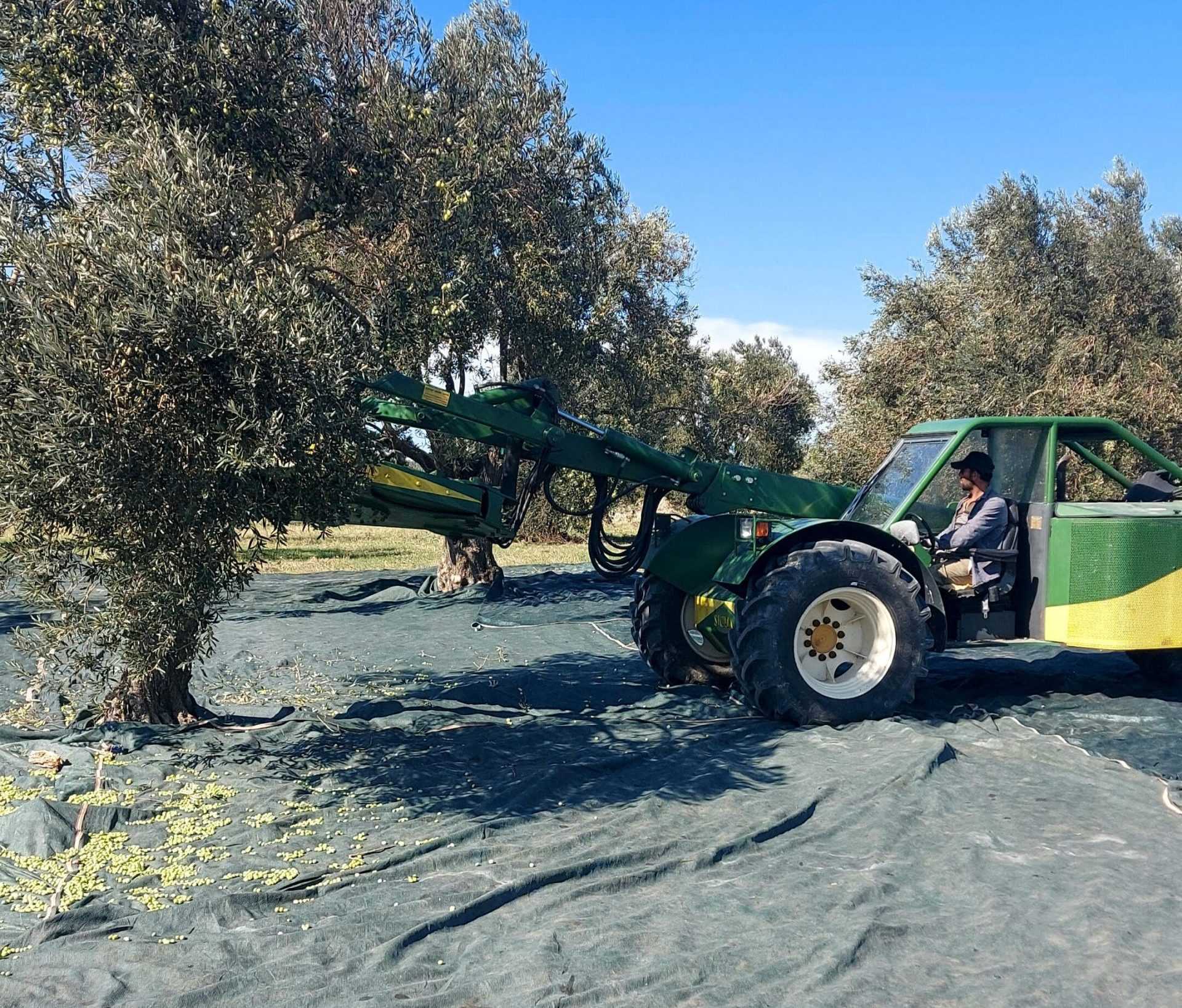
Allan, of Nova Vera, added that the pandemic had increased her production costs, but also boosted online sales.
“We had many difficulties establishing our harvesting teams and also for their transfers from and to the groves,” she said. “Our man-hour costs have increased nearly 20 percent.”
“Furthermore, cafes and restaurants are one of our major sales channels and their olive oil consumption has decreased almost 50 percent, mainly because of limitations and lockdown,” she added. “However, our direct sales via the internet have considerably increased and compensated this negative impact.”
Burgeoning online sales were a consistent theme among producers discussing the impacts of the coronavirus. Tibet, of the UZZK, said that the pandemic was changing people’s eating habits.
“The curfew and quarantine imposed due to the pandemic have changed the way of life of many of us, affected our eating habits, and our habit of eating out has been replaced by eating at home,” she said. “Turkish people started to consume more table olives and olive oil consumption increased by 25 percent in our country during this period.”
Over the past decade, olive oil consumption in Turkey has steadily trended upwards. Even as the hospitality and restaurant sector has suffered as a result of the pandemic, producers are hopeful that domestic consumption can fill the gap and fuel further increases.
“This year’s harvest is one of the better years,” said Mehmet Taki, the co-owner of Bata Tarim ve Gida Urunleri, which produced about 26 tons of olive oil in spite of a dry summer and autumn as well as delays caused by the pandemic.
“Our sales to hotels and restaurants dropped by almost 70 percent,” he said. “On the other hand, our direct sales to consumers almost doubled.”
“On average,” he concluded, “I can’t complain.”


